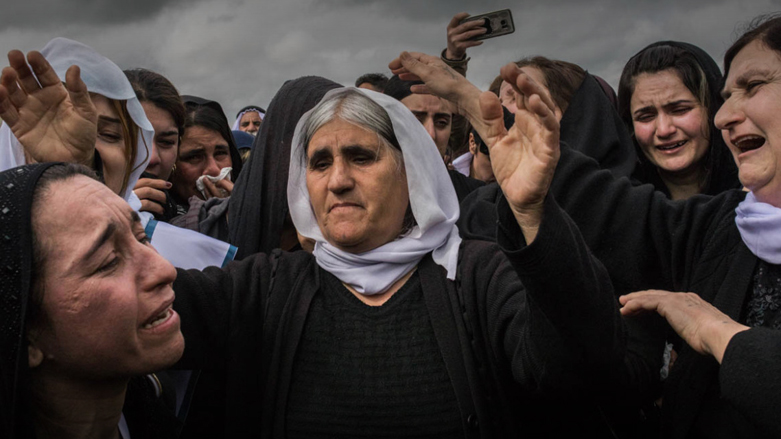UN: Yezidi survivors law a major step, full implementation essential

ERBIL (Kurdistan 24) – On the International Day for the Elimination of Sexual Violence in Conflict, the United Nations stressed the importance of fully implementing legislation for Yezidi (Ezidi) survivors of ISIS violence in Iraq.
After a long wait, Iraq’s parliament in March ratified the Yezidi survivor law, which will offer financial compensation to survivors of the genocide ISIS committed against the Yezidi community.
Parliament had debated the draft law for two years, since the presidency sent it in late March 2019.
The law aims mainly to secure the rights of the Yezidi survivors and to reintegrate them into society after the suffering they faced at the hands of ISIS.
Yezidis were subjected to one of the worst massacres in modern history at the hands of ISIS, who invaded Sinjar (Shingal) in August 2014, prompting thousands of people to flee towards the Kurdistan Region and into neighboring countries. Others were stranded, and many women and children kidnapped by the terrorist organization remain missing.
Women faced a harsh life under ISIS, subjected to rape and sexual slavery in Iraq and Syria, while most men were executed and children sent to training camps.
“The enactment of the Yezidi Survivors Law in March this year was a major step in addressing the needs of survivors of atrocities committed by the so-called Islamic State of Iraq and the Levant,” said Deputy Special Representative of the Secretary-General for Iraq Ingibjorg Solrun Gisladottir on Saturday.
The law provides for compensation, care, and rehabilitation into society, including monthly payments and a grant of land or home. It also offers Yezidis the right to return to study regardless of their age, as well as priority in appointments to public sector jobs.
Gisladottir added that “the full implementation of the law is essential. Survivors should be enabled to access all relevant benefits contained in the law.”
She urged Iraqi authorities to "ensure perpetrators are held accountable for these atrocious crimes, and to ensure that sufficient resources, including financial and human resources, are made available to meet the needs of all survivors of conflict-related sexual violence.”
Erbil-based Seed Foundation in a recent report on the Yezidi survivors law emphasized the necessity of “implementing regulations to establish survivor-centered and trauma-informed processes and mechanisms that maximize protection and accessibility and avoid re-traumatizing, harming, or placing undue burden on survivors.”
Among the prominent points in the law is that the crimes that Yezidis were subjected to are recognized as genocide, and that criminal cases should be brought against known perpetrators of the crimes against them.
The law designates August 3 of each year as a national day to publicize the brutal crimes committed against the Yezidis, and entrusts the Ministry of Culture and the Baghdad Municipality to take the necessary measures to memorialize the victims, including with public memorials and exhibitions.
About 30 percent of Shingal’s residents have returned home since the defeat of ISIS, but the region still suffers from political instability and a lack of basic services.